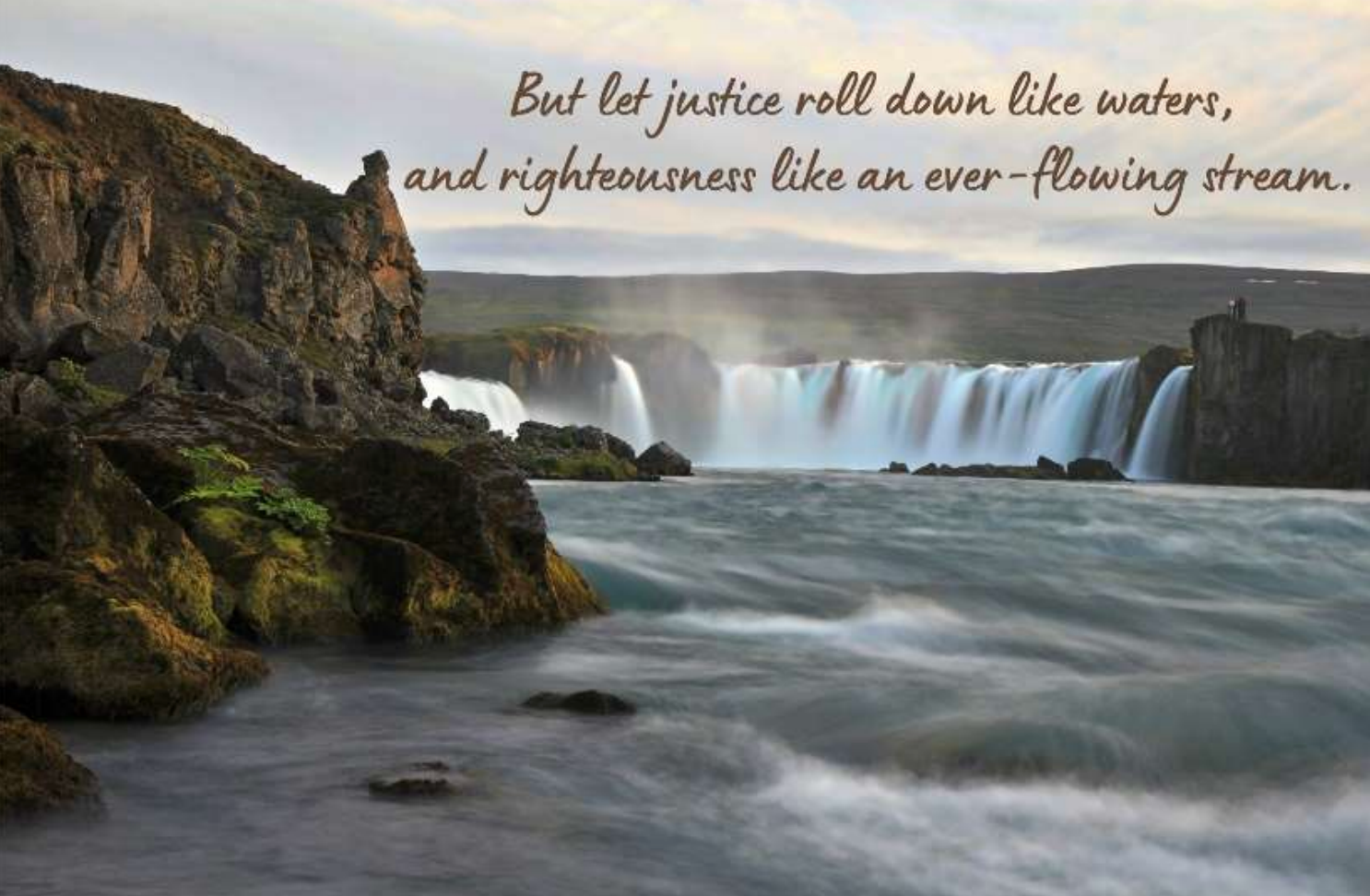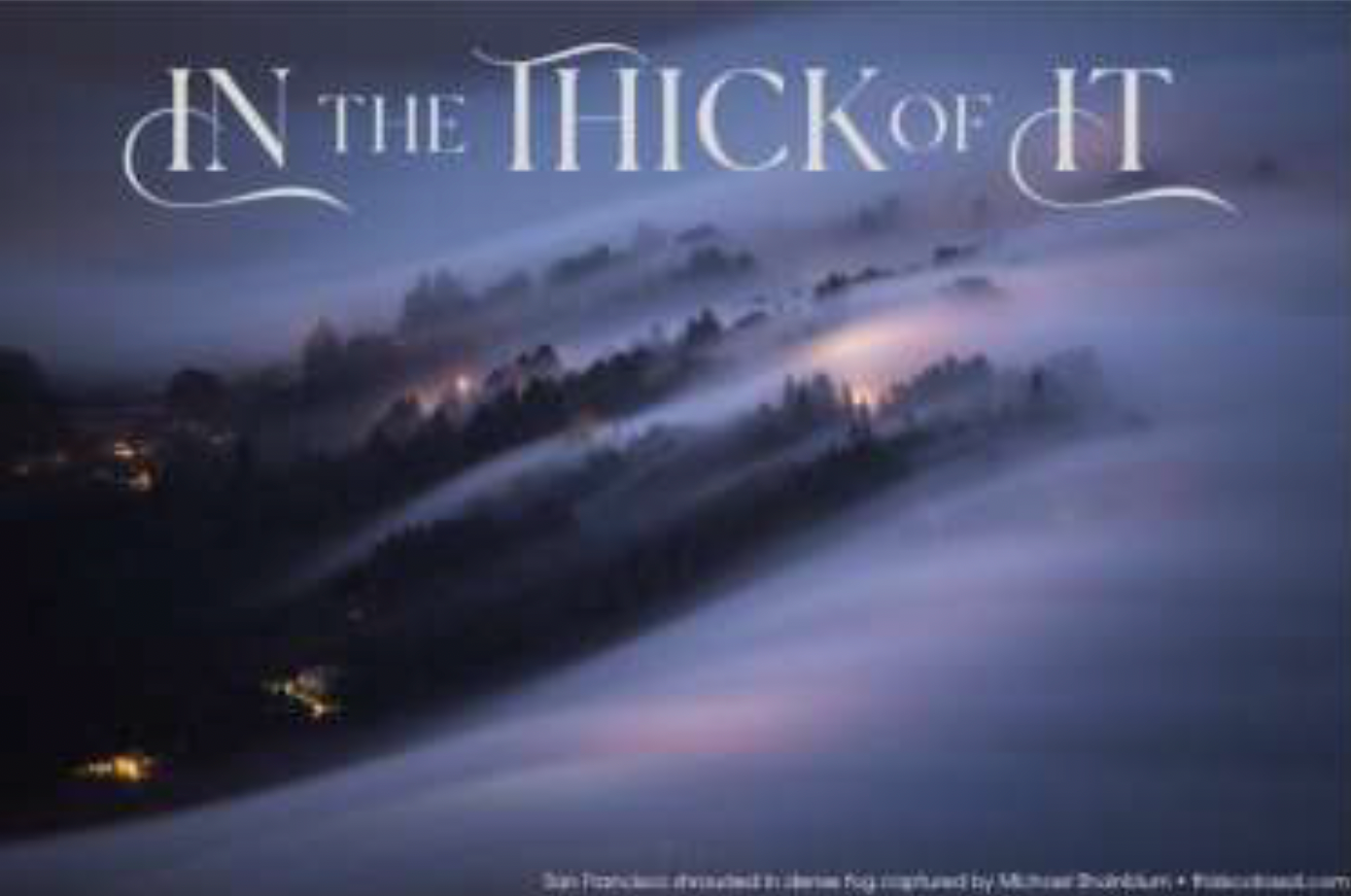Sermon 03.31.2024: Easter 10am - Completing the Story
Mark's account of the resurrection doesn't include an appearance by Jesus. The gospel originally ended with a preposition, surely causing his 8th grade English teacher to weep. Mark's gospel ends with the women fleeing the tomb in terror.
But that's not the end of the story.
How often are our lives like that? When have you had a chance to write a different ending to a part of your story?
Scripture
Mark 16:1-8
When the sabbath was over, Mary Magdalene, and Mary the mother of James, and Salome bought spices, so that they might go and anoint him. And very early on the first day of the week, when the sun had risen, they went to the tomb. They had been saying to one another, ‘Who will roll away the stone for us from the entrance to the tomb?’ When they looked up, they saw that the stone, which was very large, had already been rolled back. As they entered the tomb, they saw a young man, dressed in a white robe, sitting on the right side; and they were alarmed. But he said to them, ‘Do not be alarmed; you are looking for Jesus of Nazareth, who was crucified. He has been raised; he is not here. Look, there is the place they laid him. But go, tell his disciples and Peter that he is going ahead of you to Galilee; there you will see him, just as he told you.’ So they went out and fled from the tomb, for terror and amazement had seized them; and they said nothing to anyone, for they were afraid.
Sermon Text
We've been reading through Mark's Gospel during this Holy Week, and Thursday night, during the Passover meal Jesus recalled the prophetic words of Zechariah: “I will strike the shepherd, and the sheep will be scattered."
The disciples are the sheep who have been scattered in the traumatic events that led up to and followed Jessus’ crucifixion. One betrays Jesus, one denies Jesus, all abandon him in one way or another.
The women, though. They show up. Last week, Joann preached about the woman who poured expensive perfume over Jesus, anointing his body ahead of his death. The women stood by the cross. And here they are at the tomb, while the disciples are scattered sheep.
The authorities were looking for the disciples. The ones who said they would never abandon Jesus. Following Jesus has different costs for different people in different contexts. The Romans didn’t care what the women were doing. I mean, what trouble could some women cause, after all?
Mark’s gospel doesn’t say much about the disciples in the Easter story. It also has no appearances by Jesus in that early morning dawn, no great commandments to take the gospel to the ends of the earth, no surprise appearances to the disciples later on.
It feels abrupt and incomplete, like we were reading from a manuscript that someone abandoned because they fled in terror, saying nothing to anyone, for they were afraid. The sheep left the gospel account sitting on a table as they scattered, scared of the authorities or scared from seeing an angel.
Early church leaders must have thought, ‘this is no way to share the good news’ and so if you look in your bibles, there are two different options for endings to Mark’s gospel. The shorter one says:
“And all that had been commanded them they told briefly to those around Peter. And afterwards Jesus himself sent out through them, from east to west, the sacred and imperishable proclamation of eternal salvation. Amen.”
You don’t need to read biblical Greek to recognize that those two sentences do not sound like the rest of Mark’s gospel. The voice is off.
That’s the shorter of the two endings. The longer one feels like people who had read Luke or Matthew’s gospels and liked their endings better were trying to recap the greatest hits from their accounts.
Maybe Mark’s gospel had a better ending, and a page got lost in the mail, or who knows what.
But this is the ending we have to this story. And I confess it is my favorite Easter account. Because it feels so real.
Sometimes the endings to various storylines in our lives are too abrupt. Sometimes we are scattered sheep, running from our grief, or anxiety, or fear.
Fleeing in terror, saying nothing to nobody seems absolutely real to me.
I can also understand why early church fathers wanted to edit the story for a better ending.
But even the shorter ending isn’t the ending. The women did say something to someone.
Because 2000 years later, we are here in our proverbial Easter bonnets to celebrate the Good News that the tomb is not the final resting place.
The stone was rolled away. Grave clothes abandoned.
So the women. They get to the tomb to anoint their loved one’s dead body and they discover the world has been turned upside down. What happened next for the women, do you think? After they flee in terror? When they stopped to catch their breath on the side of the road.
“What just happened back there?”
I have no idea. But could it be true? Thursday night he did tell us to go to Galilee? Galilee is where it all started. Maybe we should go see?”
“But it cant be true?”
“Well. He did always say things that never quite made sense at the time. Maybe they make more sense now. All that crazy talk about suffering and rejection and death and resurrection—maybe we just didn’t know what he was talking about at the time.”
Mark doesn’t tell us what the women said.
Somehow they got past terror and amazement.
Somehow they remembered things Jesus had said about himself as he had been with them and taught them and they heard those comments again in light of what they had just experienced at the empty tomb.
And then the women went and proclaimed. They preached, even. They proclaimed it to their friends, the men who were hiding in an upper room.
And 2,000 years later, we’ve gathered because people throughout the years have also experienced new life after death and have told others about it.
The man waiting for them in the tomb offers the women words to point them to the next chapter of the story. He reminds them of the reality of the death “He was crucified and there is the place where they laid him”. But he also points out a new reality. “He has been raised. He is not here.” And then he reminds them of Jesus ’own words to them. After the Last Supper, Jesus told the followers, “But after I am raised up, I will go before you to Galilee.”
He gives them the information they need to continue a story they thought was over.
Think about moments in your own life where you thought the end had come and that nothing good could ever be said.
I have a friend who lives in Texas and was attending a conference in southern California. She met a woman at breakfast that day, a perfunctory sort of meeting, one where you exchange pleasantries and then go on to the work of the day.
Then she met the woman, again, at dinner that night. The conversation at the table was the usual conversations that people in ministry often have, about the churches we serve, the challenges of discerning God’s call in our lives, etc.
And then, the conversation turned to the story of my friend’s experience with adoption, and what little she knows of her origins. I am also adopted, and as my adoption story unfolded, I experienced doors opening and new relationships emerging. My friend, on the other hand, has had doors literally slammed in her face. No relationship. And too little information to be googled.
So at dinner, she was relating the few things she knows about her birth father—his nickname, the color of the car he drove 60 years ago, a general guess about where he was from—and the other woman at the table, the one she met at breakfast, started to get pale and look at her husband. My friend asks if she’s okay, and the woman says, “I think your birth father is my grandfather”.
After my friend told me her story, as we talked, she said the person who had invited them all to dinner together wasn’t sure, as he was doing the inviting, just WHY he would put this particular dinner party together. He said he felt he had to invite them all.
And I thought of the Holy Spirit, working through the life of the dinner party organizer to bring those women together.
She called me because she knew I would understand what she was feeling. She kept saying, “but it’s impossible.”
I told her, “You know, we are resurrection people. That means nothing is impossible. This is surely unlikely, but as I heard you tell it, it sounded pretty believable.”
“We are resurrection people,” she said. “Why am I surprised when it shows up in my own life?"
I don’t want to trivialize the pain of the loss and the grief we experience with death. Think back to the women at the tomb. They were grieving the death of their friend and teacher. That loss was real.
As they walked to the tomb, the story they thought they were in was ending.
As they walked back to the disciples, a new story was beginning, even in the grief.
When in your life have you encountered new life after you thought the story had ended?
Today is, in addition to Easter, the Transgender Day of Visibility. And if there are people who know about new life, it is people who brave the judgment of the world to be true to who they know God created them to be. They know, and their families know, of the death of one identity that is required for the new reality to emerge.
This day of visibility isn’t always on Easter. This year, Easter happens to fall on March 31, the day it is recognized.
Our denomination issued this statement about the importance of this day of visibility: “Picture a life shrouded in secrecy, where your true essence remains concealed from the world. Your official documents do not reflect who you truly are. Every public appearance demands that you wear a mask, hiding behind a facade that doesn’t align with your inner truth. Imagine facing legal barriers that limit your access to essential health care, participation in sports, and even the use of public restrooms. Amid this oppressive environment, consider the profound significance of discovering a small community of allies who not only accept but celebrate your authentic self, allowing it to shine brilliantly amidst the darkness. This is the significance of the Transgender Day of Visibility (TDOV).”[1]
You don’t have to understand resurrection to listen to someone else’s story. You don’t need to understand gender identity to listen to someone’s lived experience, to hear their story, and to welcome them as God’s children.
When Jesus left the tomb, resurrection didn’t make any sense to his followers either. Some Jewish groups of the era had a belief in resurrection, but it wasn’t for just one body. It was for every believer at one time. New life and resurrection doesn’t always make sense to us.
And that’s an important thing to remember. We may not always understand someone else’s new life and resurrection but when they tell us their story, we darn sure better listen to them.
In the other gospel accounts, and in the longer ending of Mark’s gospel, when the women tell the disciples about the resurrection, they aren’t believed. The men dismiss it as ‘idle tales’, which is a sanitized translation of the Greek for bologna (pardon my French).
We don’t need to understand every part of someone’s story in order to listen to their story and welcome them.
I’m still thinking about the powerful Good Friday service Victor led Friday night. The truth of the brutality of the cross is not that God needed Jesus to die on our behalf. God didn’t kill Jesus. We did. Humanity did. He died because he stood up to unjust empire and showed us not to respond to the violence of empire with more violence.
Easter is the story of God transforming human violence into new life.
In the story of the crucifixion of Jesus, we realize that violence against anyone is violence against God. As we see the stories of Good Friday play out again and again in our world, we have to claim them as violence against God and then demand a better way—from ourselves, from our elected leaders, and from our culture.
We can tell a different story than the world expects to hear.
Which brings us to what is left for us to do.
Jesus has been raised. He does not need our help with either his resurrection or anyone else’s salvation, for that matter. Jesus does not need our defense—if he can defeat death, he can handle internet trolls, and autographed bibles with American flags on them.
But death is still all around us. And there are still people who think the tomb is where the story ends. Jesus needs us to be able to adapt and respond to new life—he doesn’t need our burial spices anymore. We need to set those down in the empty tomb and leave them there.
Jesus needs our witness. We get to tell the world that new life is possible in ways we cannot even yet imagine. More than telling the world, we need to invite them to come and see for themselves.
And then we need to help each other overcome our terror and amazement so we can live into this new life God offers. We are called to get past our terror and amazement and speak of the amazing things we have seen and to share GOOD NEWS of God’s love in a world that is sorely in need of comfort, blessing, and love.
There is a new story waiting to be told.
May we tell it. May we listen to it, especially when it comes from the voices we least expect. Go and tell. Jesus is not in the tomb. Resurrection is all around us. We are resurrection people.
1 https://www.presbyterianmission.org/story/the-pcusas-advocacy-committee-for-lgbtqia-equity-recognizes-transgender-day-of-visibility/#:~:text=%E2%80%9CThe%20Advocacy%20Committee%20for%20LGBTQIA%2B,as%20Transgender%20Day%20of%20Visibility.%E2%80%9D











